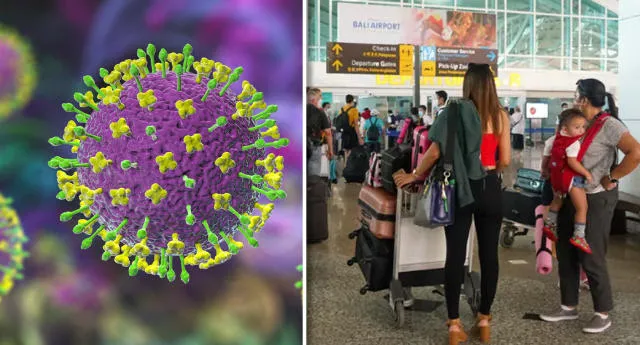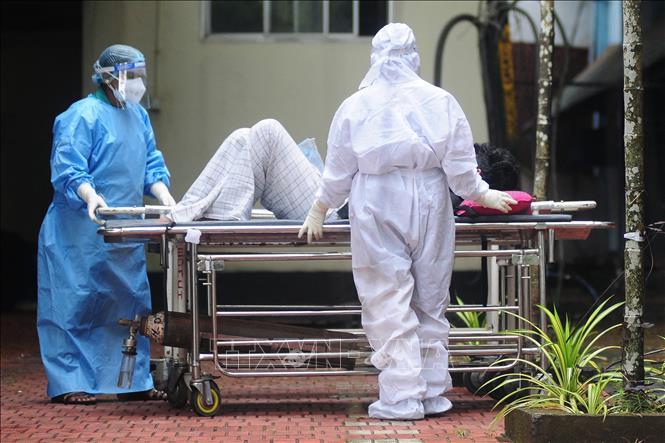Health officials on the Indonesian resort island of Bali said that if a passenger is found to have traveled to countries with a history of Nipah virus infection and has symptoms including high temperature and acute respiratory infection, they will be taken to hospital for a comprehensive examination, according to SCMP .

Travelers arriving at Bali's international airport will be screened for Nipah virus
Bali health agency director I Nyoman Gede Anom said oxygen supplies were deployed following deaths from the brain-damaging virus in the southern Indian state of Kerala last month.
In addition to India, the Nipah virus outbreak has spread to other Asian countries such as Bangladesh, Malaysia, Singapore... After the outbreak, Bali has increased medical surveillance to prepare to deal with this deadly virus.
All passengers arriving at Bali's I Gusti Ngurah Rai International Airport will undergo health checks. "At the airport, medical equipment to monitor body temperature has been installed. If a tourist is found to have a higher than normal body temperature, we will conduct further investigation," he stressed.
He urged people travelling from countries where Nipah virus is circulating to immediately go to hospital for proper check-up, while asking people to be vigilant and if they have persistent fever and acute respiratory infection (ARI), to see a doctor.
The head of Bali's health agency also stressed that the Nipah virus has not yet been detected in Indonesia and everything is being done to prevent its spread.
According to the World Health Organization (WHO), the incubation period of Nipah virus can vary from 4 to 14 days, while in some rarer cases, an incubation period of 45 days has been recorded.
In some cases, Nipah virus causes symptoms very similar to the flu. Initial symptoms are often fever, headache, muscle aches, vomiting and/or sore throat.
As the virus gets stronger, dizziness, drowsiness, altered consciousness and other neurological signs suggestive of acute encephalitis, even difficulty breathing and acute respiratory infections are other symptoms of Nipah.

Medical staff transfer a patient with Nipah virus symptoms to the hospital in mid-September.
Nipah virus can be tested using RT-PCR and ELISA tests. Currently, there is no vaccine or specific medicine for Nipah virus.
Nipah virus is believed to be transmitted from person to person in addition to being transmitted from animals such as bats and pigs to people. A person can also contract the virus through contact with biological fluids such as urine and saliva, samples or consumption of contaminated food.
Source link


![[Photo] Prime Minister Pham Minh Chinh chairs meeting on railway projects](https://vphoto.vietnam.vn/thumb/1200x675/vietnam/resource/IMAGE/2025/10/23/1761206277171_dsc-9703-jpg.webp)

![[Photo] Prime Minister Pham Minh Chinh meets with South African President Matamela Cyril Ramaphosa](https://vphoto.vietnam.vn/thumb/1200x675/vietnam/resource/IMAGE/2025/10/23/1761226081024_dsc-9845-jpg.webp)
![[Photo] President Luong Cuong holds talks with South African President Matamela Cyril Ramaphosa](https://vphoto.vietnam.vn/thumb/1200x675/vietnam/resource/IMAGE/2025/10/23/1761221878741_ndo_br_1-8416-jpg.webp)









































































































Comment (0)